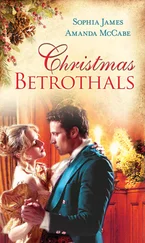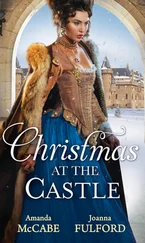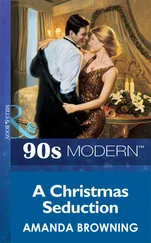A log fell on the fire, sending up a shower of sparks, and a clamor of voices sounded from the mirrored hallway, but Lady Havorford went on as if there’d been no interruption.
“At school, Christopher never tired of telling his chums of the medals Sir Miles had won,” she said. “One day, one of the boys, out of jealousy or spite, pointed out that no campaign medal was ever struck to honor the men of Bomber Command and for good reasons. It wasn’t until Christopher read history at university that he discovered what those reasons were.”
“Area bombing,” Julian murmured.
Lady Havorford’s eyebrows rose. “You have done your research, Father Bright.”
Julian turned to me. “It was in the book I borrowed from you, the one from Luke Boswell’s shop. During the Second World War, the RAF intentionally bombed civilians, hoping to destroy German morale. No one outside Bomber Command knew much about it until after the war.”
“Christopher was horrified to think that Papa’s bombs had fallen on schoolyards as well as submarine bases,” said Lady Havorford.
“Many people were horrified, once the truth was known,” Julian pointed out. “That’s why the men of Bomber Command were never awarded a campaign medal.”
“But they were soldiers,” I said, “and it was war. They were only—” I nearly said, “They were only following orders,” but the implications of the phrase silenced me.
“They were doing what needed to be done,” Lady Havorford stated flatly. “Christopher, however, saw things differently. He called Papa a monster. He said that Papa was no better than the terrorists whose bombs kill innocent passersby. He moved here, to live with me, and a short time later he left university to work for a friend who owned a stable.”
“Did Sir Miles respond to the accusations?” Julian asked.
“He began writing a memoir,” said Lady Havorford, “to explain himself to his son.” She rose from her chair and returned to the mahogany desk. She stood over it for a moment, gazing down at the blotter, the inkwell, the green-shaded reading lamp, then sat behind it, facing us across a vast expanse of polished wood.
“He compiled most of it at this desk, after long days spent at the Imperial War Museum.” She opened a side drawer and withdrew from it a thick sheaf of papers bound with a black ribbon. “Papa worked on his memoir for more than a decade,” she continued, placing the manuscript on the blotter, “but Christopher showed no interest in Papa’s work. Neither he nor I saw the memoir until… after.”
“After what?” coaxed Julian.
Lady Havorford folded her hands atop the manuscript’s black ribbon. “Four years ago,” she said, “Papa was asked to travel to Normandy, to participate in the ceremonies commemorating the fiftieth anniversary of the D-day invasion.”
“Another honor for Sir Miles,” Julian commented.
“It would have been,” Lady Havorford acknowledged. “He was, alas, unable to attend. The D-day ceremonies took place in June, you see, three months after Papa had remembered quite another anniversary.” She looked from Julian’s face to mine. “Does the thirteenth of February mean anything to you?”
Four years ago, in February, Kit had fled his sister’s home to search for the patron saint of aviators. Had he quarreled with his father on the anniversary of a long-forgotten battle? Even as I shook my head, I wondered nervously if Kit had somehow injured his father, then gone to Saint Joseph’s, hoping for some kind of absolution.
“On the thirteenth day of February, 1945, my father flew a mission deep into Germany,” said Lady Havorford. “As a Pathfinder, he carried a full load of incendiaries to mark the target and set it well ablaze. He fulfilled his mission brilliantly. By the end of the first night’s bombing, the glare in the sky above the target could be seen from two hundred miles away.
“By the end of the second night,” she continued, “some twenty-five thousand people were dead—twenty-five thousand men, women, and children, residents of the city as well as refugees fleeing from the Russian army, burnt or blasted or suffocated by the firestorm that sucked the oxygen from their lungs.” Her hand caressed the manuscript. “The target wasn’t a munitions factory or a submarine base. It was a virtually defenseless medieval city renowned for its art and the beauty of its architecture. You may have heard of it. It was called Dresden.”
The fire’s pleasant crackle seemed to rise to a menacing roar, and the wheezing sighs of sizzling sap sounded eerily like agonized screams. The room’s decorative giltwork shimmered as though licked by tongues of flame, but Lady Havorford’s eyes were as cold as ice as she raised her hand and pointed to the gilded balcony.
“On the thirteenth day of February,” she said, “fifty years after the raid on Dresden, my father hanged himself, just there, above his volumes on military history.”
Somewhere beyond the double doors a sweet tenor voice warbled “God Rest Ye Merry, Gentlemen.” I thought of Kit, standing in the rain at the end of a weed-grown runway, murmuring prayers to the empty sky, bereft of all comfort and joy.
Lady Havorford’s hand came back to rest on the manuscript. “Christopher was here that evening,” she said. “He found Papa’s body. He also found the letter in which Papa confessed to crimes against humanity and sentenced himself to the proper death for a war criminal.”
Julian seemed to wilt beside me, as if the weight of Sir Miles’ tragedy had fallen on his own shoulders. “The poor, tormented soul,” he murmured.
“My father requires no man’s sympathy,” said Lady Havorford, her voice filled with disdain. “Sir Miles was a great man tormented by an ungrateful son. Christopher cherished the world my father fought to preserve even as he condemned the way in which my father fought to preserve it. Papa was a hero. Christopher is a hypocrite as well as a murderer.”
“He’s not a murderer,” I put in gently. “Your father committed suicide.”
“Christopher drove him to it,” snapped Lady Havorford. “Sir Miles never lost a moment’s sleep over his part in the war until Christopher filled his mind with doubt.” Her hands turned to fists atop the memoir. “It was only after his son lost faith in him that he lost faith in himself.”
“Did you accuse your brother of murder?” Julian asked.
“I didn’t have to,” Lady Havorford replied. “Once he’d seen the memoir, he knew exactly what he’d done.” Her powder-blue eyes narrowed. “I told him he had no right to his legacy and he agreed. He should have transmitted his inheritance to my son, but instead he wasted it on undeserving strangers.”
“The money helps a lot of people,” I offered.
“A sop to soothe a guilty conscience,” said Lady Havorford, softly but venomously. “The first step in his absurd scheme to redeem himself. Poverty, chastity, good works, and prayer—sound familiar, Father Bright? Christopher thought it would cleanse his soul, but I knew better.” She paused to adjust the hang of a diamond earring, adding almost as an afterthought, “I was relieved when he disappeared, and I have no intention of allowing him to return.”
There was a sudden burst of laughter from the hallway followed by shouts of Merry Christmas! I jumped, startled by the sound, kicked over the canvas carryall, and sent Anne Somerville’s brown horse tumbling across the Aubusson rug. With a hasty apology, I scrambled to retrieve the scruffy toy.
“Lancaster?” Surprise mingled with distaste in Lady Havorford’s voice. “Don’t tell me Christopher’s still dragging that nasty old thing around with him.”
I looked uncertainly from her to the patched and faded toy. “Lancaster?”
Читать дальше








